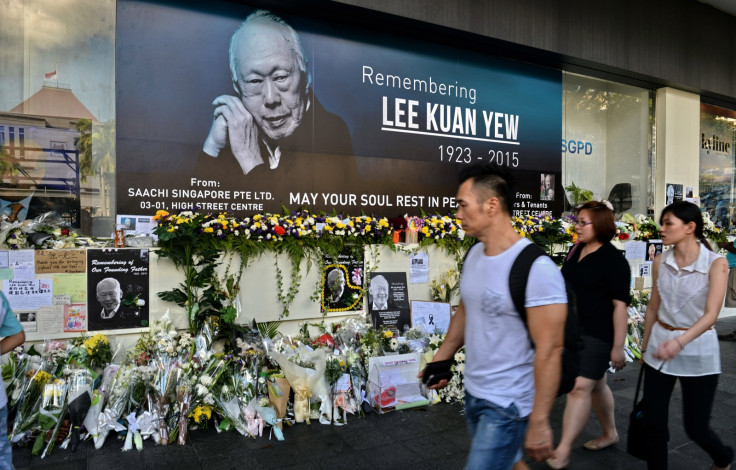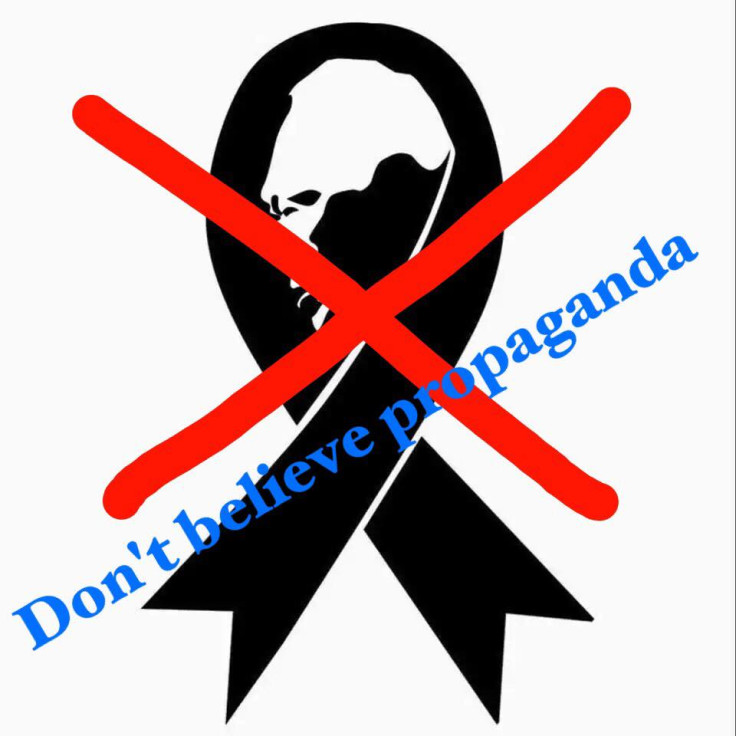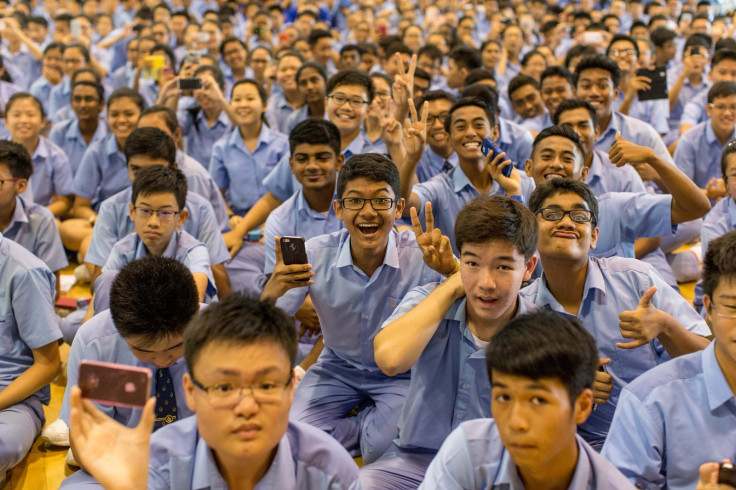Lee Kuan Yew death: Beyond the queuing mourners, dissent reigns online

It has not even been a week since the death of Lee Kuan Yew, the first prime minister of Singapore and who is widely regarded to be its founding father, and although the country's media is full of stories, anecdotes and memories of the man, as well as tributes from foreign and local dignitaries, on the internet it is another story.
Of course, there is a great outpouring of grief for the politician, who stepped down as prime minister in 1990 but continued to rule behind the scenes as senior minister and then minister mentor, but on Facebook page communities and status updates, local forums and blogs, there is also a lot of discussion about what the media is not focusing on – a critique of Lee's policies.
Publicly, most Singaporeans are simply sharing tributes to Lee Kuan Yew with their networks of friends, or linking to blog posts by Singaporean bloggers that caution a more middle-ground point of view of "not being too sad" or recognising Lee was human too and made mistakes like everyone else.
Rising anger online
Yet there are some people who do not care who reads their statuses and who have been posting a wide range of angry and frustrated comments that range from accusing Lee of being racist, and being dismissive of his achievements, to complaining about nepotism, and being glad he is dead.
There are moans about endless different taxes, complaints about the amount of foreigners in the country and even memes showing Lee Hsien Loong – the current prime minister and son of Lee Kuan Yew – with dollar signs in his eyes, or telling people not to believe in propaganda.

The last few days has seen a rising trend in these Facebook statuses being screen capped and shared by other citizens privately for discussion through the private messaging function on Facebook, or posted publicly to anonymous Singapore Facebook community pages and forums.
But why is there so much hate and vitriol? Perhaps it could be because these things are never said publicly, or maybe the local media's portrayal is starting to rub some people up the wrong way.
"The media has been going on and on for days about the success story of Lee Kuan Yew. They are painting him as a mystical, legendary hero, creating a character that will live on throughout history," says Dr Felix Tan, head of the Global Education programme at the Singapore Institute of Management.
"He was a great man and a great leader, but he was a man of his time. He needed to do what he had to do. We know his good things. His legacy is Singapore. Anywhere you turn is his legacy. But surely the media should perhaps show what sort of mistakes he has made, to paint him more as a human."
The three camps in Singapore
Currently there are three camps in Singapore: the people who are devastated that Lee Kuan Yew has died and really grateful for all his policies have given them; the people who are sad that he has died, are grateful but still want changes in government policies; and the people who are not grateful at all and dislike Lee being turned into an idol.
The online dissention should continue with the rhetoric, criticising in order to make change. But I'm not sure it's the right time to do so – we should give respect to someone who has just passed away. That's my only gripe with keyboard warriors. It's almost like a TV debate, only it's on social media
There is also the argument now being seen in comments all over the internet that no matter whether the PAP and Lee Kuan Yew have done anything wrong, now is not the time to bring it up. Part of the reason for this is propriety and some of it comes from traditional Asian values and superstitions.
"The PAP needs to look within and see what needs to be changed, and the online dissention should continue with the rhetoric, criticising in order to make change," says Tan.
"But I'm not sure it's the right time to do so – we should give respect to someone who has just passed away. That's my only gripe with keyboard warriors. It's almost like a TV debate, only it's on social media."
A lack of gratitude

The camp devastated by Lee's passing cannot understand why anyone could criticise the man, and in keeping with traditional Asian values, many comments on the internet complain about "a lack of gratitude among younger people".
A local playwright and poet Alfian Sa'at told the Straits Times on 27 March that he had to make a satire posted on his Facebook page private after receiving death threats and abuse from other users. Some of the comments on the Straits Times article shared on Facebook accused him of having "no respect" and some even told him to "Go 'back' to Malaysia".
"The older generation see themselves as beneficiaries of Lee Kuan Yew's housing policies, of going from rags to riches, but the younger generation grew up in times of plenty so they don't understand exactly what he did," says Dr Alan Chong, associate professor in International Relations at Nanyang Technological University's S. Rajaratnam School of International Studies.
"If you quiz a young person about what policies Lee enacted, they will give you the blanket answer that 'he did a lot for Singapore', but they don't really understand the difficulties he went through. I spend a lot of time having to explain Lee's key policies to university students."
In Singapore schools, from the 1970s to 2000s, a key policy taught to school children was that fact that Singapore could be attacked at any time, that "we only have ourselves to depend on".
But Chong says the young men entering National Service (mandatory military service) today no longer believe this to be true because Singapore has not been attacked by any nation in decades.
"The 'siege mentality' is gone now, it's been replaced by 'deliquescent security', whereby the Singapore identity now needs to be as liquid as possible," he explains.
"In Singapore, you can be as nationalistic as you want, but out in the world, you need to find a way to be a kind of cultural embassador. The former foreign minister George Yeo, he said Singaporeans operate on a wide cultural broadband. You need to switch between cultures, and that's your value to the rest of the world."
What the young people think
Singaporean blogger Jeraldine Phneah, who was attacked online by citizens due to saying she wasn't absolutely devastated that Lee has passed on, offers a reason why the younger generation is more cynical.
"Some of Generation Y can be more cynical and critical of the information received. Most of us grow up thinking that all is perfect in Singapore and with Lee Kuan Yew, due to influence from our history textbooks and state-controlled press, [but] as we grow older, we start to discover some of the negative things our leaders did due to the rise of social media over the last few years that has exposed us to different perspectives," she says.
"Some of us, me included, have also gotten the opportunity to live and work overseas. The older generation often tells us we are so lucky compared to our South East Asian neighbours. However, since Singapore is a developed country I find that it would be more relevant for us to compare ourselves to other Asian Tigers or rich nations around the world. That will help us to improve the way we are doing things here."
© Copyright IBTimes 2025. All rights reserved.






















